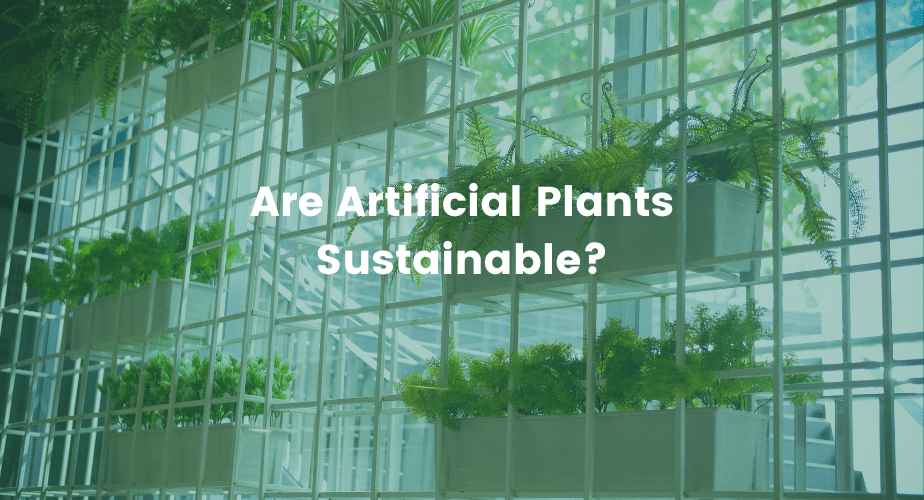Are artificial plants sustainable?
In the ever-evolving world of interior design and plant decor, the use of artificial plants has become a topic of debate. While faux botanicals offer a range of benefits, questions have arisen about their environmental impact and long-term sustainability.
In this blog post, we explore the various aspects of artificial plants’ ecological footprint and their role in creating greener spaces.
The environmental concerns
There are many elements that contribute to a faux plant’s sustainable credentials, such as where and how it’s made.
Artificial plants are typically made from various synthetic materials such as plastic, fabric, and wire. The production of these materials involves the use of fossil fuels and resources, contributing to carbon emissions and environmental degradation.
The manufacturing process of artificial plants requires energy-intensive procedures, including moulding, shaping, and colouring. These processes release greenhouse gases and pollutants into the environment.
Although, artificial plants have a longer lifespan compared to natural ones – with a quality fake plant lasting years. Of course, the disposal of these products can pose a challenge, as many of the materials used are not biodegradable and can contribute to landfill waste. We’re botanical experts and are increasingly sourcing more eco-friendly and zero-waste materials for our bespoke installations for our customers.
The sustainability debate
The sustainability of artificial plants is not a simple black-and-white issue – and there are several factors which must be considered.
Natural plants require ongoing care, including water, sunlight, and nutrients. Artificial plants, on the other hand, eliminate the need for these resources. However, the energy used in their production and manufacturing may offset these benefits.
The longevity of artificial plants can also be an advantage, as they do not wither or require replacement as often as real plants. This can reduce the overall consumption of resources associated with plant cultivation and maintenance.
However, artificial plants can’t improve air quality like the real thing. Some artificial plants are treated with chemicals that may impact indoor air quality. Opting for high-quality, non-toxic artificial plants can mitigate this concern.
Artificial plants can add a touch of greenery to spaces where natural plants struggle to thrive, such as low-light areas and offices. This aspect enhances the aesthetics of interior spaces while contributing to occupants’ well-being.
Finding balance and sustainable alternatives
While the debate surrounding artificial plants’ sustainability continues, a balanced approach is healthy when it comes to the topic of artificial plants.
Opting for high-quality artificial plants made from eco-friendly materials can extend their lifespan and minimise their environmental impact.
Also, integrating a mix of natural and artificial plants can create visually appealing and sustainable indoor landscapes. Natural plants contribute to air purification and a sense of connection with nature, while well-chosen artificial plants offer design versatility.
Researching and choosing artificial plant brands that prioritise sustainability, ethical practices, and quality materials can contribute to a more environmentally conscious choice. This is a huge part of what we do at Fleurtations and why so many of our customers opt for our bespoke artificial installations for their offices, events and venues.
Find out more
The sustainability of artificial plants is a nuanced topic with both advantages and drawbacks. While their production and disposal have environmental implications, their longevity and ability to enhance interior spaces cannot be ignored.
To create truly sustainable indoor environments, a thoughtful approach that incorporates both natural and well-chosen artificial plants can strike a balance between aesthetics and ecological responsibility.
As consumers, designers, and business owners, we can contribute to greener living spaces by making informed decisions that align with our values and the well-being of our planet. To find out more about our services, click here.

